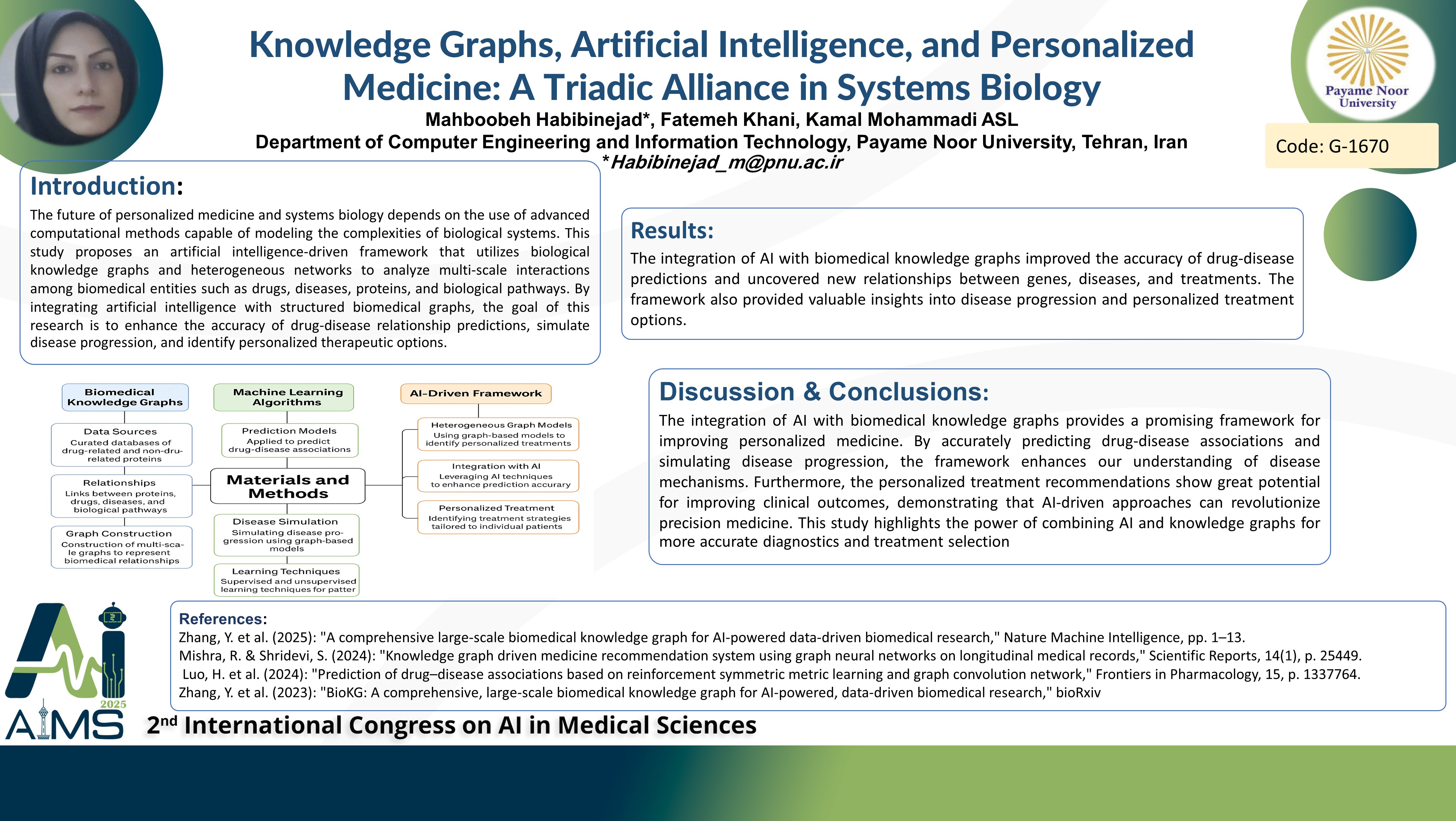Knowledge Graphs, Artificial Intelligence, and Personalized Medicine: A Triadic Alliance in Systems Biology
Code: G-1670
Authors: Mahboobeh Habibinejad * ℗, Fatemeh Khani, Kamal Mohammadi ASL
Schedule: Not Scheduled!
Tag: Cancer Diagnosis & Treatment
Download: Download Poster
Abstract:
Abstract
The future of personalized medicine and systems biology will depend on advanced computational approaches capable of modeling the complexity of biological systems. This study will propose an artificial intelligence-driven, graph-based framework that will utilize biological knowledge graphs and heterogeneous networks to analyze multi-scale interactions among biomedical entities such as drugs, diseases, proteins, and biological pathways. Background and aims: As systems biology will continue to emphasize the interconnected nature of biological processes, and personalized medicine will aim to tailor therapeutic strategies to individual patient profiles, graph-based representations empowered by artificial intelligence will offer a promising integrative solution. This research will investigate how the combination of artificial intelligence techniques with structured biomedical graphs will enhance the prediction of drug–disease associations, simulate disease progression, and identify patient-specific treatments. Method: Biomedical knowledge graphs will be constructed from curated databases, linking key entities through biologically meaningful relationships such as treats, causes, and interacts with. These graphs will serve as a foundation for applying machine learning and deep learning algorithms, which will be used to discover hidden patterns, forecast clinical outcomes, and recommend personalized therapeutic options. The proposed modeling approach will align with systems biology by enabling scalable and integrative analysis of complex biomedical data. Results: The integration of artificial intelligence with biomedical knowledge graphs will be expected to improve the accuracy of therapeutic predictions and drug efficacy assessment. It will also uncover novel relationships between genes, diseases, and treatments, providing deeper insights into disease mechanisms. These outcomes will contribute to advancing data-driven personalized healthcare by bridging large-scale biological knowledge with individual-specific needs. Conclusion: Artificial intelligence-powered graph modeling will emerge as a foundational approach at the intersection of personalized medicine and systems biology. By structurally representing complex biological relationships and applying predictive algorithms, this framework will support more precise diagnostics, targeted treatment selection, and intelligent clinical decision-making in the future of medicine.
Keywords
personalizedMedicine, systemsBiology, artificialIntelligence, biologicalKnowledgeGraph, heterogeneousNetwork, drugDiseaseInteraction,
